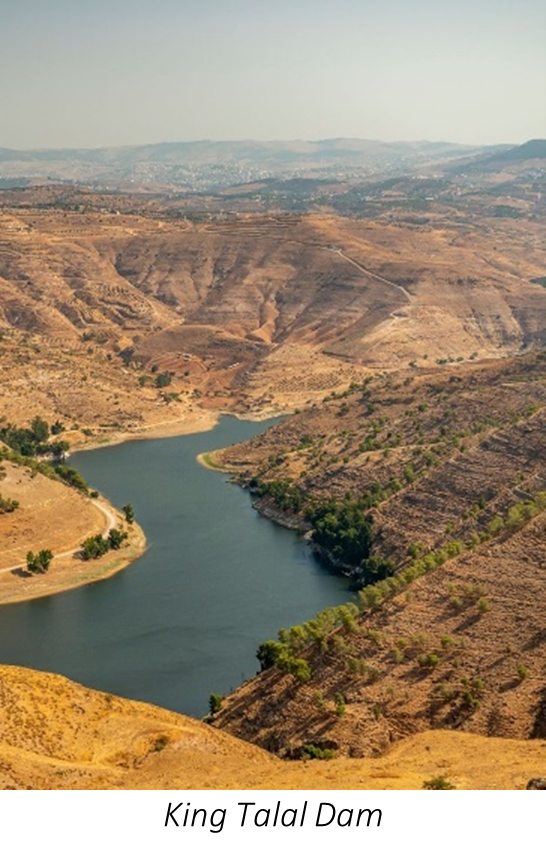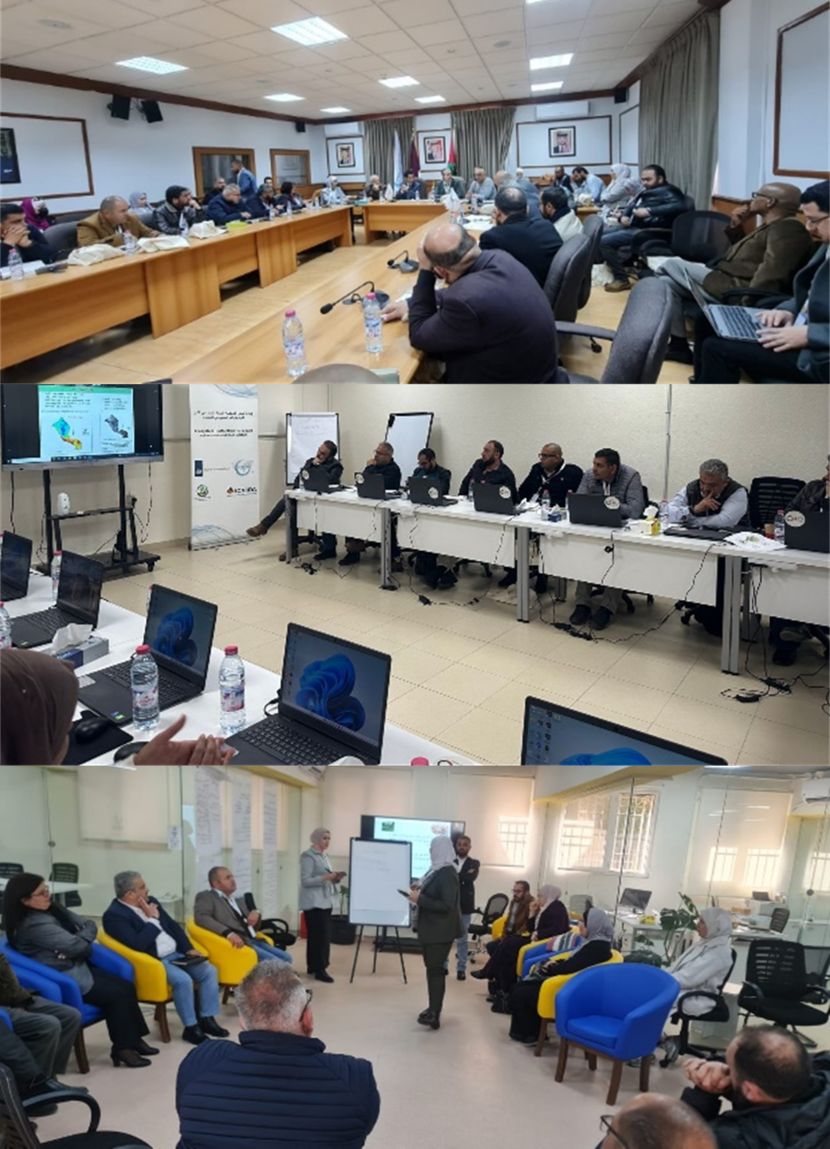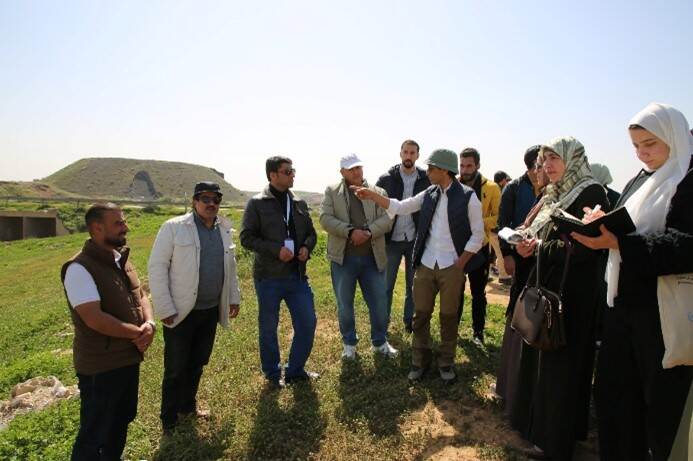Jordan King Talal Dam Ecosystem Restoration to reduce Soil Erosion in Amman Zarqa Basin
Being one of the most arid countries in the Middle East, Jordan is facing severe water shortages. Precipitation occurs in the short, cool winters, with an average of 270mm annually. 27% of the rain is captured by the dams, while King Talal Dam catches 30% of this water.
Jordan’s National Water Strategy (2023-2040) states that only 5% of Jordanian land receives enough rainfall to support cultivation. Even though farmers irrigate less than 10% of total agricultural land, agriculture is the largest user of water nationally, necessitating strict rationing of available resources and optimization of cropping patterns.

Climate change, bad agricultural practices and poor land use planning caused an ecosystem degradation in the catchment area of the King Talal dam, the dam now is heavily impacted by the influx and accumulation of sedimentation. The water from the dam serves central and south Jordan Valley and is considered one of the main food security pillars in the country since it irrigates 30% of the Jordan Valley farms. The accumulation of 10 MCM of sediments during the last 40 years has caused a reduction in total storage capacity and has impacted the spillways and structure of the dam due to uneven and obstructed water flow, in addition, it impacted the water quality as sediments are good incubator of trace elements and bacteria in some cases.
Based on the above-mentioned facts, the Agro Team in Jordan, comprising the Agricultural counsellor to Egypt and Jordan and the Agricultural Advisor, decided to support a workshop on ecosystem restoration to reduce soil erosion in Amman Zarqa Basin. The workshop aimed at building a strong landscape partnership to restore catchment area of the King Talal Dam. The main objective of the restoration effort is to reduce dam siltation in the Dam. During the workshop, system awareness was raised that restoration does not only benefit ecological return (siltation of the dam) but also return of inspiration, social and financial capital.
In March 2024, a four-day workshop “Ecosystem Restoration to Reduce Soil Erosion and Dam Siltation” focusing on the Amman Zarqa Basin in Jordan was held with the lead of INWRDAM (Inter-Islamic Network on Water Resources Development and Management) and ICARDA (International Center for Agricultural Research in the Dry Areas), at the facilities of INWRDAM and NARC (National Agricultural Research Centre).

The Workshop focused on addressing soil erosion and dam siltation in the Amman Zarqa Basin, through comprehensive theoretical sessions, practical exercises, and field visits. It aimed to foster a robust understanding of ecosystem challenges and cultivate a network of informed stakeholders equipped to implement sustainable restoration strategies.
The ecosystem restoration workshop resulted in enhanced understanding of participants on ecosystem degradation issues and restoration opportunities, and emphasized the importance of involving local communities and stakeholders at all levels, ensuring that restoration efforts are community-driven and sustainable, while the presentations to policymakers and stakeholders culminated in concrete recommendations for ecosystem restoration, particularly concerning innovative tools and community partnerships. As an outcome of the workshop, community of practice was established among participants to support ongoing dialogue and collaboration post-workshop.

The recommendations of the workshop and the way forward were:
- Comprehensive Basin-Level Study across the Amman Zarqa Basin to identify soil erosion hotspots. It should integrate advanced GIS and remote sensing technologies to map erosion severity and dynamics, which will inform targeted, effective restoration strategies and interventions.
- Immediate commencement of pilot projects in identified areas to apply and adjust the conceptual models developed.
- Leveraging the workshop’s outcomes to advocate for and develop policies that facilitate ecosystem restoration at national and regional levels.
- Establishing mechanisms for ongoing learning, feedback, and adaptation of restoration strategies based on emerging outcomes and evolving scientific understanding.
- Continuing to engage stakeholders through further training, workshops, and collaborative projects to build local capacity for long-term ecosystem management.
To learn more about the workshop sessions, the activities and the field visit, you can check the Report.